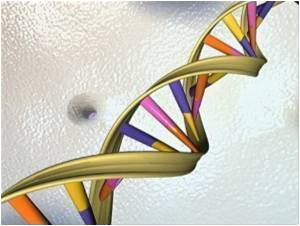A suit has been filed in the federal court in Sydney challenging the granting of gene patents.

Now the suit, filed jointly by the law firm Maurice Blackburn, Cancer Voice Australia and a Brisbane woman with breast cancer, Yvonne D'Arcy, seeks to put an end to the practice of issuing gene patents.
About 400 gene patents have been granted in Australia. Access to the genes, whether for research or diagnostics, is at the behest of the company, which holds the patent for 20 years.
Maurice Blackburn principal Rebecca Gilsenan said the legality of gene patents had never been challenged in Australia.
She said the patents agency, IP Australia, was ''giving these [patents] out - they're privatising [genes] … and it's never been clarified by anybody''.
The court challenge will seek to overturn the Australian patent to the genetic mutations BRCA 1 and BRCA, which is owned by a US biotech company and two international research organisations.
Advertisement
She said Maurice Blackburn's interest in gene patents had been galvanised in 2008 when GTL tried to enforce its licensee patent rights to BRCA 1 and BRCA 2.
Advertisement
John Stubbs, chief executive of Cancer Voices, said it was imperative that all gene information remained in the public domain.
''As a cancer patient you want to feel that you retain ownership, that you retain control over your treatment.''
But representatives of the biotechnology industry say the landmark legal case could stifle innovation and investment in important medical research.
GTL's chief executive officer Paul MacLeman said he was concerned that removing patents would have a detrimental impact on investment in the industry.
"Without the protection of a patent, there's no incentive for anybody to develop a commercial product and while these institutes in the various places around Australia are offering the BRCA test, they wouldn't be in a position to do so had it not already been commercially developed in the US," he said.
Similar concerns are held by the chief executive of BioMelbourne Network, Michelle Gallaher.
"If the case goes through and we're no longer able to patent genes, it throws into question a lot of research and development that may be halted along the pipeline," she said.
"Biotech companies are not going to invest heavily in developing some of these tests if they don't have some degree of the potential for a return on their investment by getting a product to the market and having a degree of monopoly for some period of time."
But patent expert law expert Professor Luigi Palombi, from the Australian National University, says the new lawsuit is very significant. “It is important because for the first time in Australian legal history, the Australian courts are going to rule on whether an isolated biological material, such as the human gene which has been removed from the human body, is an invention…For the last 20-odd years the Australian patent office [IP Australia] has been granting patents on all manner of genes and biological material such as plants, plant genes, viral genes - all manner of biological material…. It will mean a message will go out to the patent office immediately that it can no longer continue to pursue a policy that's led to the grants of these kind of patents. It will force biotechnology companies to start innovating in different ways,” he noted.
"We want the biotechnology sector to focus on inventions which will use genes to deliver better diagnostics, better treatments and better cures - well, cure, period.
"That's not going to happen if we're locking up raw fundamental data of the human genome in patents. It just won't happen," he stressed.
The move comes after a New York court recently invalidated the US patent for the same breast and ovarian cancer gene, and as an Australian Senate inquiry into the impact of gene patents is preparing to release its report.
Source-Medindia











